The Collaborative Humanities Initiative supports teaching and programming that foreground collaborative practices in humanities research, advancing innovative scholarship for the 21st century. Below are a few highlights of this year’s activities.
Preparing graduate students for the profession
In the capstone seminar for the Doctoral Certificate in Collaborative Humanities, graduate students across disciplines sharpen and refine their research projects as they simultaneously explore collaborative roles beyond traditional scholarship, including interviewing their peers and collectively creating and sharing an archive of formative texts. In promoting an interdisciplinary network of early career scholars, the certificate program prepares participants for informed and engaged academic careers. In the spring 2022 workshop, students developed projects on topics in religious studies, anthropology, comparative literature, history, modern culture and media, music, and theatre and performance studies.
Fostering productive dialogue between disciplines
In spring 2021, cognitive scientist Joachim Krueger and philosopher Bernard Reginster team-taught “Psychology and Philosophy of Happiness,” developed under the aegis of the institute’s Collaborative Humanities Course Award. One year later, in spring 2022, they joined Meeting Street host Amanda Anderson for a broad-ranging discussion, with special focus on how collaboration between their respective disciplines enhances student learning and paves the way for important new research into a timely topic. An edited version of the transcript also appeared in The Chronicle of Higher Education.
Showcasing important research through creative work
A spring 2022 collaborative humanities seminar titled “Decolonial Matters: Thinking from the South,” led by archaeologist Yannis Hamilakis and historian Vazira Zamindar, gave graduate students a unique opportunity to explore the history of colonization and decolonization in the global South. Focusing on the materiality of things, objects, artifacts, and landscapes, from archaeological remains to museum objects, works of art, and contemporary material traces of migration and border crossing, the semester culminated in an exhibition of course participants’ original artwork addressing the themes of the course.
Exploring contemporary concerns in a public setting
The Collaborative Humanities initiative featured Jonathan Sterne, James McGill Professor of Culture and Technology at McGill University, in a lively conversation with Cogut postdoctoral fellow Emily Lim Rogers on the politics of disability and the lived experience of impairment.
The initiative also hosted a conference titled “Capitalism and the Human,” organized by Timothy Bewes and University of East London professor Jeremy Gilbert, which convened an international group of scholars to discuss the ways in which the understanding of the human is bound up with the dynamics of contemporary capitalism. The conversation explored an array of topics including the notion of the anthropocene, the politics of reproduction, and solidarity between the human and nonhuman.

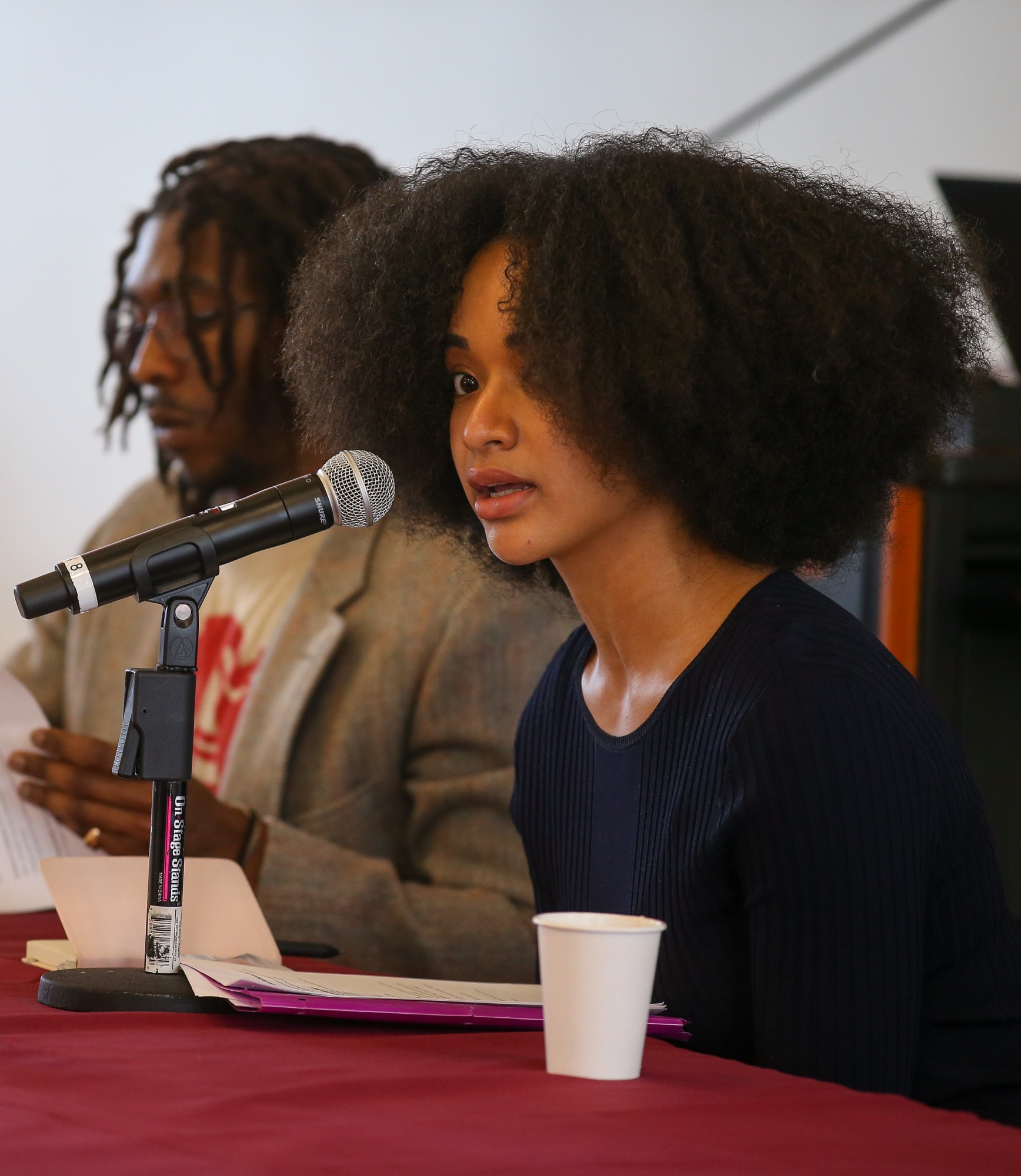
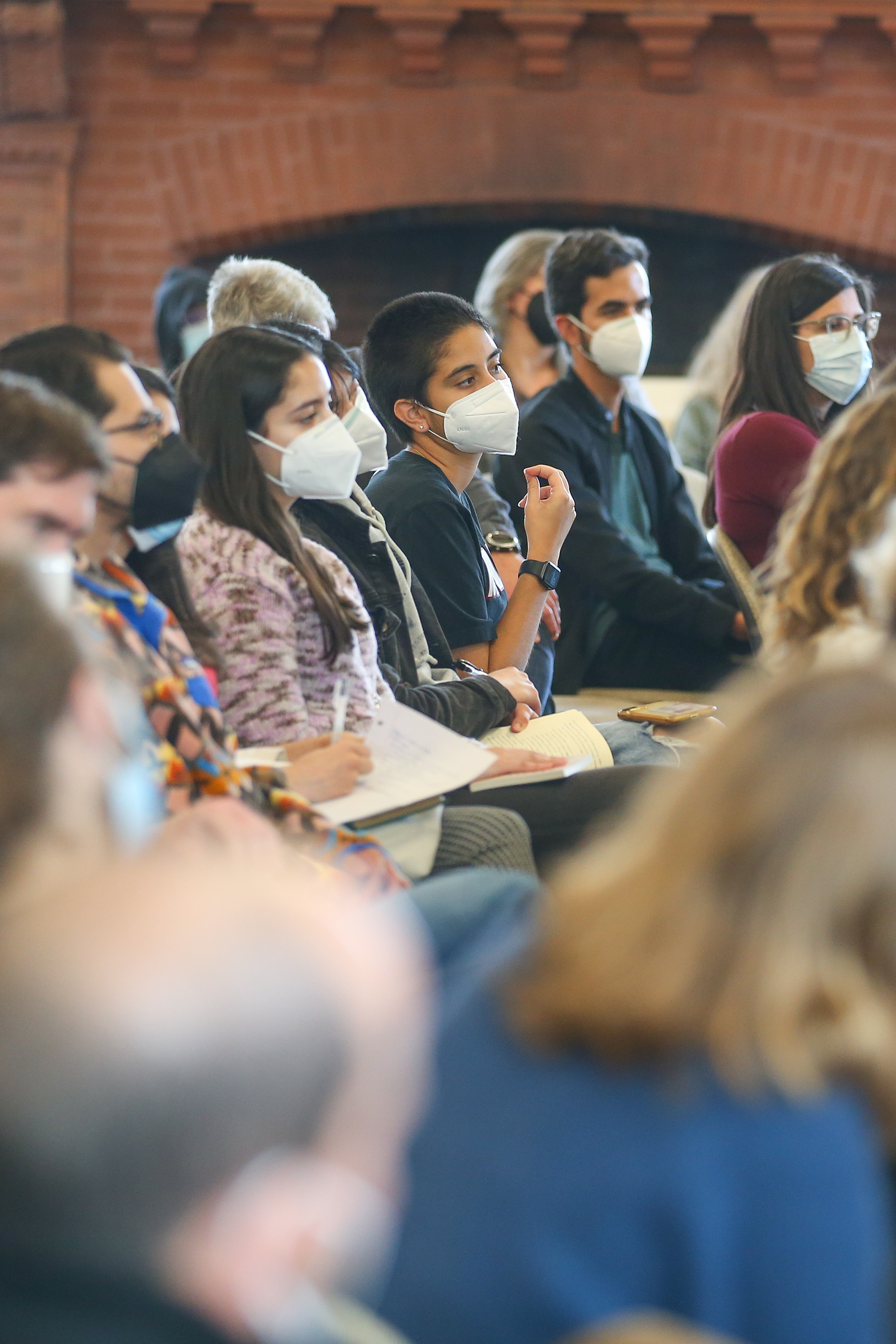
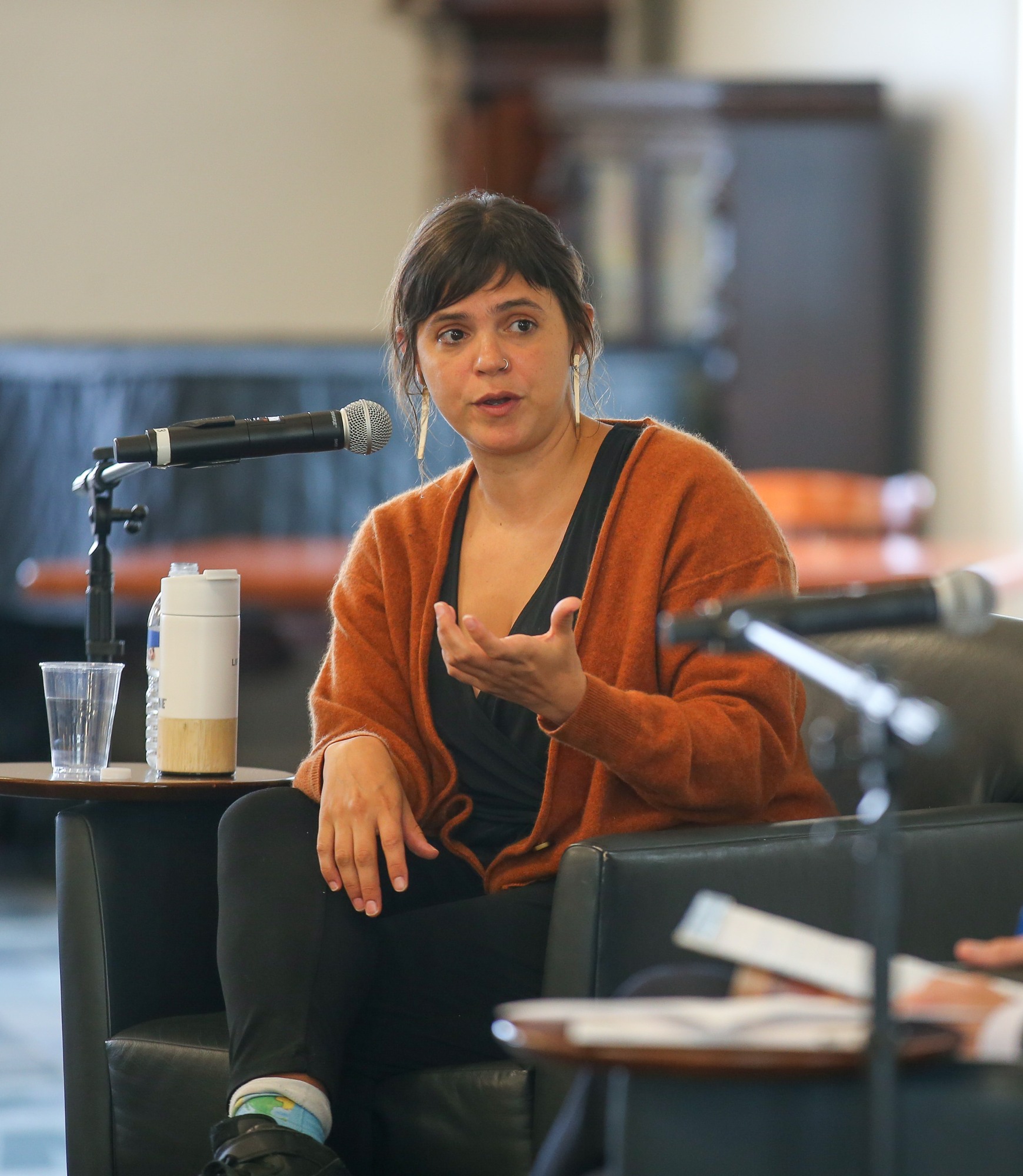
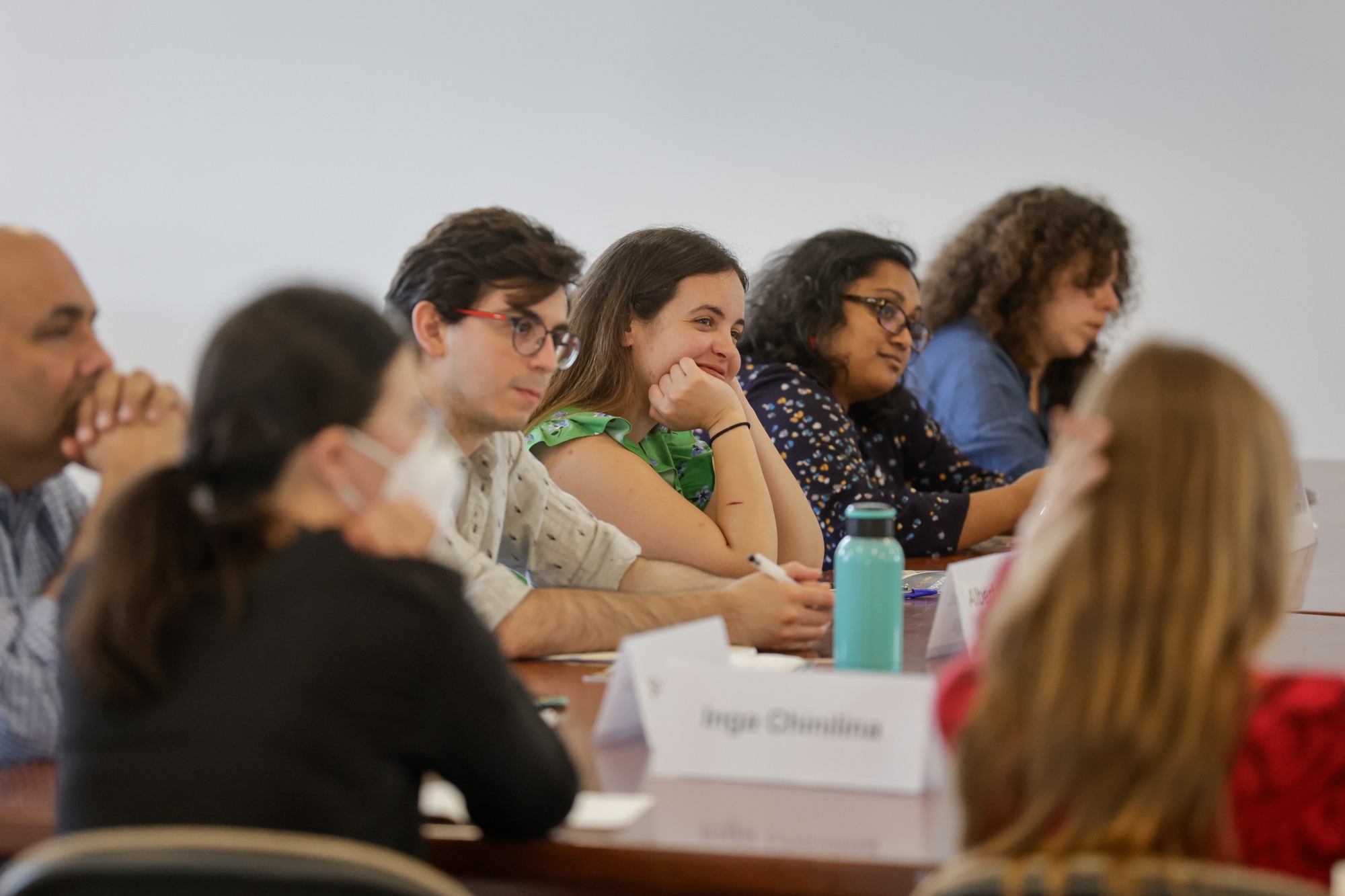
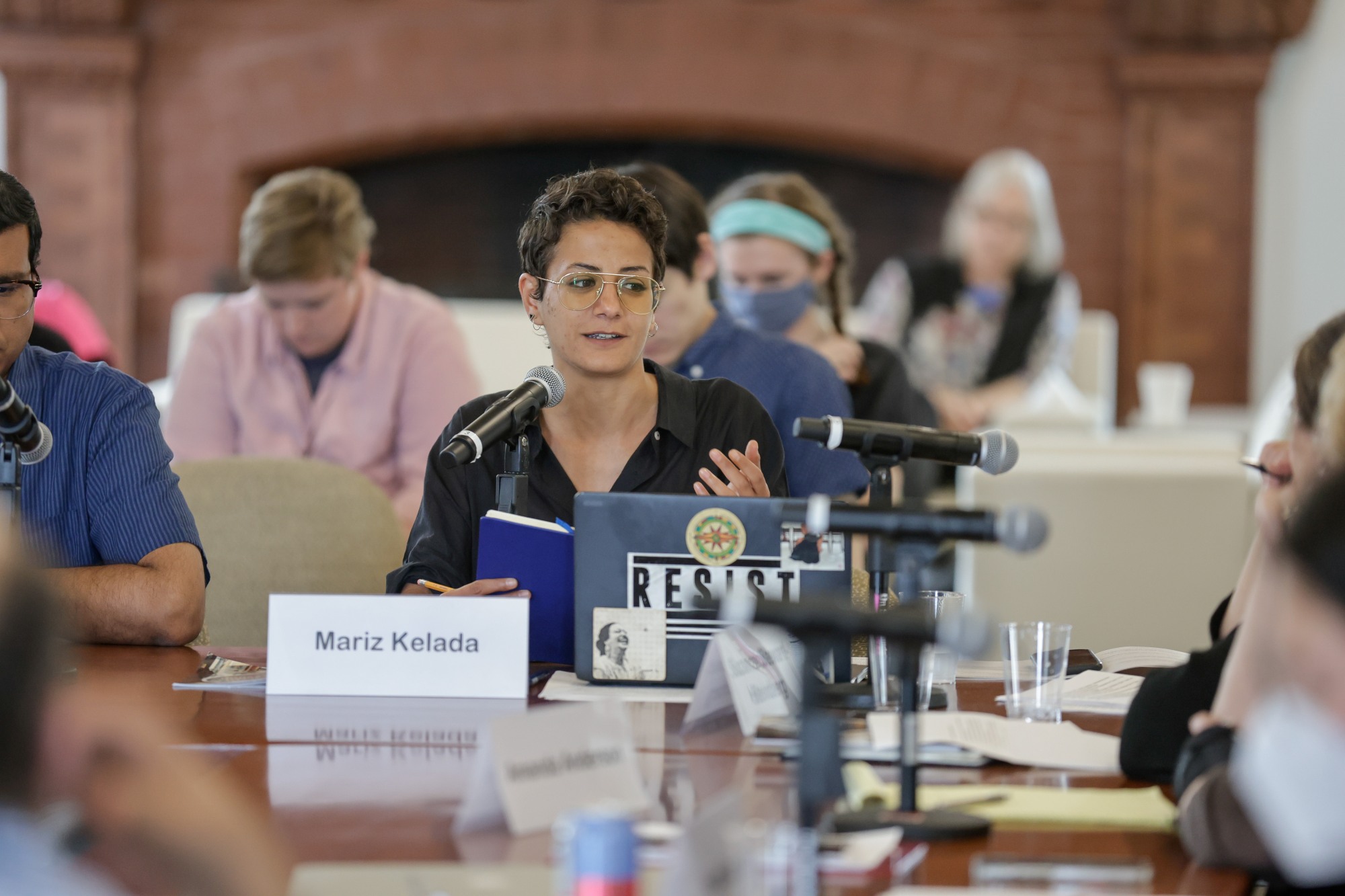
.jpg)
.jpg)